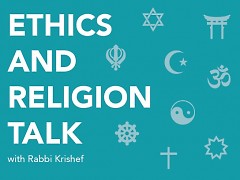Doug Van Doren, the pastor of Plymouth United Church of Christ, responds:
“In the United Church of Christ, the minimum educational requirement for ordination are a four year undergraduate degree, followed by a three year Master’s of Divinity degree, and generally a year of internship and/or a Clinical Pastoral Education program (an intensive, supervised practicum.) In addition to the educational requirements, to actually be ordained, one must demonstrate knowledge of denominational history and polity; submit, defend, and have accepted an ordination paper delineating one’s theology and sense of call; pass an in-depth psychological exam; receive a call requiring ordination; and receive a positive vote from local church delegates of the regional setting of the church.”
Rev. Ray Lanning, a retired minister of the Reformed Presbyterian Church of North America, responds:
“Presbyterianism has always promoted education for all and insisted on a well-educated ministry as non-negotiable. There are slight variations from one denomination to another, but in general Presbyterian and Reformed churches require a Bachelor’s degree from an accredited college or university and a Master of Divinity degree from an accredited theological seminary. Many require at least a year of supervised work or “internship” in a local church as well. The process can take as long as 7 to 10 years to complete. These requirements may be waived only in exceptional cases. Candidates for the ministry must also undergo thorough examination of doctrine, life, and motives in a court or assembly of the church, usually the local presbytery or classis.”
Fred Stella, the Pracharak (Outreach Minister) for the West Michigan Hindu Temple, responds:
“For those called to be priests it can mean either years of seminary (known as a gurukul), or the training can be passed down within a family. These efforts can take as many as 10 years to complete. One must master Sanskrit, become proficient at performing various rituals and (we hope) lead an exemplary life.
“The other option is to become a monastic. Similar to Western monasteries, men and women enter an ashram for years of training. Monks and nuns are taught spiritual practices such as meditation and ways to cultivate devotion. They are often the ones who teach the laity the scriptures and philosophy of the religion. When the ashram superiors feel that the candidate has matured appropriately he or she is then considered a member of the ancient order of swamis.
“I, personally, was ordained as a Pracharak, which is similar to a chaplain, by our local temple. I did not go through a formal preparation process, but was accepted on the merits of over 30 years of study and practice.”
The Reverend Colleen Squires, minister at All Souls Community Church of West Michigan, a Unitarian Universalist Congregation, responds:
“To become an ordained Unitarian Universalist minister a person must earn a Master’s of Divinity degree from an accredited seminary. This usually takes three years to complete. One must also complete one year of Clinical Pastoral Education aka hospital chaplaincy training and one year full-time (or a 2 year part-time) parish internship.
“All of the above along with our denominational requirements such as a reading list which has over 100 articles and books on it; the Bible in not on this list. Then it is required that the person meet with our Ministerial Fellowship Committee (MFC). This committee will have read written essays, letters of recommendation and academic records. They will evaluate a person's ministerial presence. Once the person is approved by the MFC a congregation will need to vote to ordain the person. Once approved by a congregation to ordain there will be a ceremony of ordination, often held in the springtime. In our UU faith the ability to ordain a person into ministry rests solely in the hands of the congregation. And finally ordination does not give the person the title of Reverend. Reverend is an honorary title and used to signify respect.”
The Rev. Sandra Nikkel, head pastor of Conklin Reformed Church, responds:
“To be ordained as a minister in the Reformed Church in America I did an undergraduate degree on Bible, Theology and New Testament Greek. Then I went to seminary for 3 years and did various internships. I also had to pass a fitness for ministry exam which included an emotional and psychological evaluation. After that I had to write a long theological thesis. Then I had to pass final written and oral exams. I had a separate set of written and oral exams about everything I had learned in Seminary in front of a big group of pastors from the Classis (group of churches arranged by geographical affiliation) I was a part of. After they voted and approved me I was given the green light to be ordained. But my ordination could not take place until a church invited me to come and be their pastor. This would be my final confirmation that I was called me to be a minister.”
This column answers questions of Ethics and Religion by submitting them to a multi-faith panel of spiritual leaders in the Grand Rapids area. We’d love to hear about the ordinary ethical questions that come up on the course of your day as well as any questions of religion that you’ve wondered about. Tell us how you resolved an ethical dilemma and see how members of the Ethics and Religion Talk panel would have handled the same situation. Please send your questions to [email protected].
The Rapidian, a program of the 501(c)3 nonprofit Community Media Center, relies on the community’s support to help cover the cost of training reporters and publishing content.
We need your help.
If each of our readers and content creators who values this community platform help support its creation and maintenance, The Rapidian can continue to educate and facilitate a conversation around issues for years to come.
Please support The Rapidian and make a contribution today.
